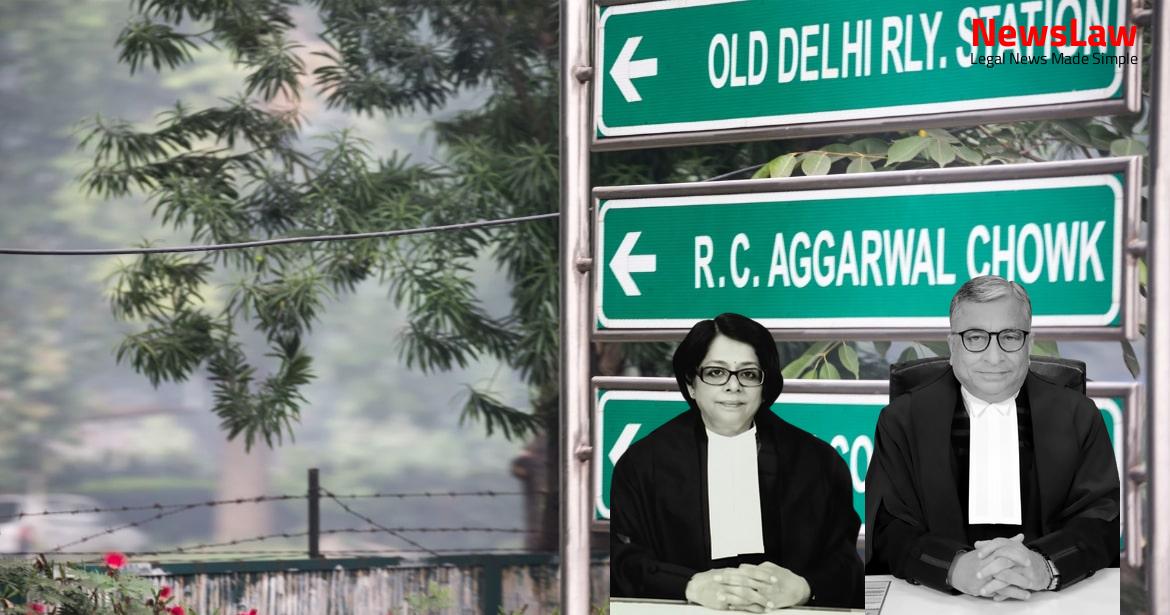Explore the intricate legal analysis by the High Court’s decision in upholding the protection orders under the Domestic Violence Act. The court’s thorough examination of the provisions and application of the law sheds light on the importance of safeguarding individuals’ rights in cases of domestic disputes. The detailed judgment sets a significant precedent for similar cases, emphasizing the need for legal protection in such sensitive matters.
Facts
- The High Court of Delhi at New Delhi upheld the orders passed by the Mahila Court and Additional Sessions Judge in relation to the appellant’s case under the Protection of Women from Domestic Violence Act, 2005.
- The Mahila Court disposed of the application for variation of the protection order dated 17.06.2008 with specific observations.
- The order dated 26.10.2016 by Mahila Court and the order dated 15.04.2017 by Additional Sessions Judge-2 were affirmed by the High Court.
- The appellant filed a civil suit (295/2009) and obtained an interim injunction against her husband to prevent her dispossession from the premises in question.
- The order dated 26.10.2016 was passed to ensure the appellant’s possessory rights over the flat in question cannot be disturbed unless the husband obtains an alternative accommodation for her as per the law.
- Respondent No.2 filed an application for variation of protection orders dated 17-06-2008, which was disposed of on 26-10-2016, leading to the current appeal by the appellant.
Also Read: Legal Analysis on Arbitration Petition Limitation Period
Issue
- The premises in question, where interim protection of right of residence was granted to the appellant, belonged to Ms. Geeta Gupta, the first wife of respondent No.1
- Respondent No.1 was awarded only a ⅓ share of the sale proceeds of the premises in a partition suit filed by his son from his first wife
- The premises in question could not be considered a ‘shared household’ as defined in the Act
- The right of protection for residence is only against respondent No.1, the husband
- Respondent No.1 was ordered by the Hon’ble High Court to provide suitable, reasonable accommodation in accordance with the law to the appellant
- The appellant can reject alternative accommodations offered by respondent No.1 and propose accommodations of her choice by moving an appropriate application before the court
- Appropriate applications can be made for seeking modification of orders regarding the quantum of rent if the offered rent is not sufficient
- Alternative accommodations within the rent limit of Rs.15,000 per month have been suggested through websites, with the option to explore other websites for more choices
Also Read: Analysis of High Courts’ Jurisdiction and Court Orders Under Article 142
Arguments
- The respondent No.1 did not dispute the market value of the apartment mentioned by the appellant.
- The appellant requested a minimum threshold of Rs.65 lakhs as ⅓ share of the sale proceedings, which the respondent No.1 showed willingness to grant.
- The appellant intends to use the settlement amount for monthly living expenses by putting it in a fixed deposit.
- The respondent No.1 is directed to deposit Rs.5,00,000/- for interim payment and other expenses within four weeks.
- The respondent No.1 is also directed to deposit Rs.1,00,000/- for rent and Rs.10,000/- for out of pocket expenses.
Also Read: Electoral Malpractices in Mayor Election
Analysis
- Appellant expresses inability to find suitable rental accommodation
- Expresses willingness to accept ⅓ share in the value of the apartment
- Respondent to respond within 3 days
Decision
- The appellant and respondent No.1 shall appear before the court for the second motion stage in the proceedings under Section 13B of the Hindu Marriage Act for mutual consent divorce.
- The respondent No.1 shall facilitate the re-entry of the appellant within seven days of her expression of intent.
- Rival submissions on the re-entry point were noted in the order dated 18.11.2019.
- The respondent No.1 can conduct minor repair works and painting of the apartment if necessary.
- A permanent alimony of Rs. 65,00,000/- is to be provided to the appellant as part of the dissolution of marriage.
- Dismissal of the application under Section 13B shall not affect other proceedings between the appellant and respondent No.1.
- No third-party rights are to be created by respondent No.1 on the apartment, and any deal that may prejudice the appellant’s interest is prohibited.
- In case of non-re-entry by the appellant, the respondent No.1 is to pay Rs. 30,000/- per month as rent.
- The appellant is to vacate the apartment within eight weeks of filing the application, hand it over to respondent No.1, and receive Rs. 6,00,000/- from the court registry.
- The sale of the apartment should be completed within three months of the appellant vacating it.
- Upon payment of 1/3 share in the apartment or Rs. 65,00,000/-, respondent No.1’s obligations towards the appellant cease.
- If the apartment is not sold, the appellant can retain Rs. 6,00,000/- and re-enter it.
- Options were given for providing a rented accommodation as alternatives were not accepted by the appellant.
- After the mutual consent divorce decree, Rs. 60,00,000/- will be handed over to the appellant by the court registry.
- In case the apartment is not sold and retained by respondent No.1, a sum of Rs. 70,00,000/- will be paid to the appellant.
- Even if the sale consideration is less, Rs. 65,00,000/- is still to be paid by respondent No.1 to the appellant as permanent alimony.
Case Title: NEELAM GUPTA Vs. MAHIPAL SHARAN GUPTA (2020 INSC 377)
Case Number: Crl.A. No.-000417-000418 / 2020



